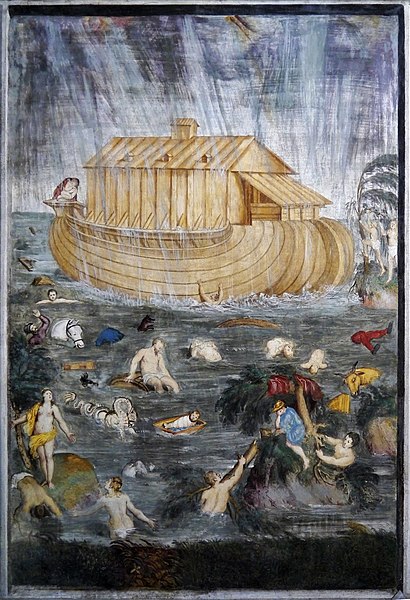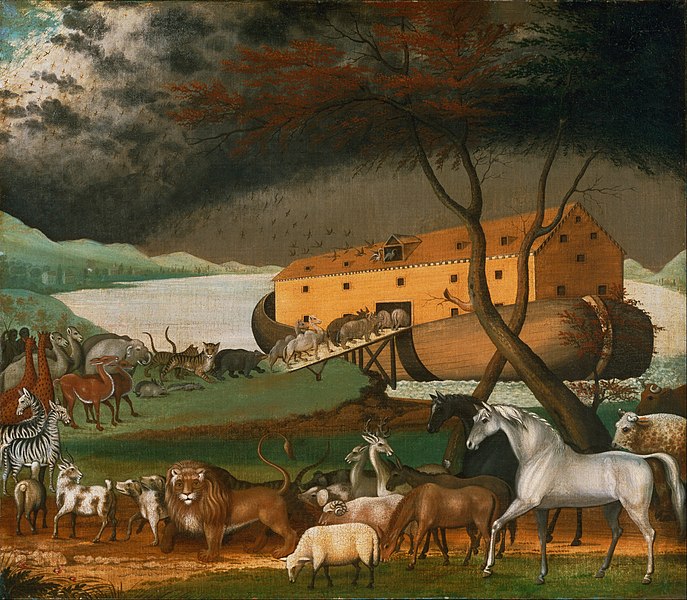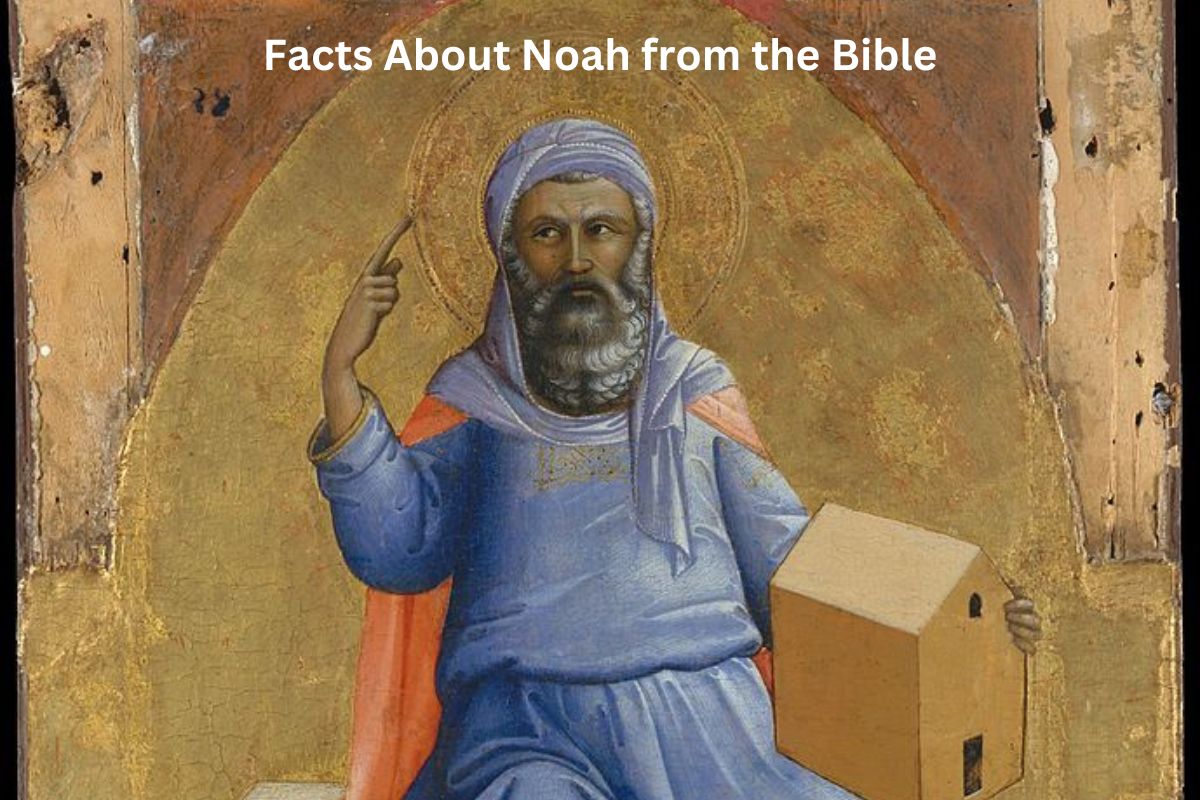Noah, a central figure in the Bible’s Book of Genesis, is known for his pivotal role in the narrative of the Great Flood.
Described as a righteous and blameless man, Noah was chosen by God to construct an enormous ark to save himself, his family, and representatives of every animal species from a worldwide deluge. His story is not only one of survival but also embodies themes of faith, obedience, and divine covenant.
In addition to his remarkable ark-building endeavor, Noah’s life encompasses significant events, including an incident of drunkenness and a covenant with God symbolized by a rainbow.
His enduring legacy extends to the New Testament, where his faith is celebrated in the “Faith Hall of Fame” found in the book of Hebrews. This introductory overview provides a glimpse into the multifaceted story of Noah as depicted in the Bible.
Noah from the Bible Facts
1. Righteous and blameless man
In the Bible, Noah is described as a righteous and blameless man in Genesis 6:9. This characterization highlights his moral integrity and faithfulness to God.
Also Read: Facts About Noah’s Ark
While the world around him was filled with wickedness and corruption, Noah stood out as a person who walked faithfully with God. His righteousness played a crucial role in God’s decision to choose him to build the Ark and survive the impending flood.

2. Builder of the Ark
God instructed Noah to build an enormous ark to save himself, his family, and representatives of every species of animal from the catastrophic flood that was to come.
The dimensions of the ark are provided in Genesis 6:15-16, and it was a massive structure designed to float on the floodwaters while providing shelter and protection for its occupants.
Noah’s obedience and diligence in constructing the Ark are a testament to his faith and commitment to God’s command.
3. Survived the Great Flood
The most well-known aspect of Noah’s story is his survival of the Great biblical Flood. God, seeing the wickedness and corruption of humanity, decided to send a worldwide flood to cleanse the earth.
Noah and his family, along with the animals on the Ark, were the only survivors of this catastrophic event. The flood lasted for 40 days and 40 nights, and the Ark provided safety for its occupants until the waters receded, allowing them to repopulate the earth.
4. Father of Shem, Ham, and Japheth
Noah had three sons: Shem, Ham, and Japheth. These three sons are mentioned in the Bible as the offspring of Noah and his wife, though their specific roles and significance differ in the biblical narrative.
After the flood, these sons and their wives played a crucial role in repopulating the earth and were considered the ancestors of various nations.

5. Took two of every animal on the Ark
As part of God’s instructions, Noah was commanded to gather two of every kind of animal, both clean and unclean, onto the Ark to preserve their species during the Great Flood.
This task was a monumental undertaking, as it required Noah and his family to collect and care for a vast array of animals, ensuring their safety and survival throughout the duration of the flood.
6. Sent out a dove to find dry land
After the floodwaters had covered the earth for an extended period, Noah wanted to determine if the waters had receded and if there was dry land available. To do this, he sent out a dove from the Ark.
The dove returned with an olive leaf in its beak, signaling that it had found an area of vegetation and that the floodwaters were receding.
This act of sending out the dove is an iconic moment in the story of Noah and is often associated with the hope of renewal and God’s covenant with humanity.
7. Covenant with God symbolized by a rainbow
After the floodwaters had completely receded, God made a covenant with Noah and his descendants, symbolized by a rainbow. This covenant was a promise from God never to flood the earth again to the same extent.
When God saw the rainbow in the clouds, it served as a reminder of this covenant. The rainbow has since become a symbol of hope, mercy, and God’s faithfulness in many religious traditions.

8. Lived to be 950 years old
According to the Bible, Noah lived to an extraordinary age of 950 years. This exceptional longevity was not uncommon for many of the early biblical figures, such as Adam, Methuselah, and others.
In the genealogical accounts in the Book of Genesis, the ages of these patriarchs are often listed, suggesting that they lived much longer than people typically do today.
Noah’s long life allowed him to witness and participate in significant events, including the construction of the Ark and the aftermath of the Great Flood.
9. Incident of drunkenness in Genesis 9
After the floodwaters had receded, there is a notable incident in the Bible where Noah planted a vineyard, made wine, and became drunk from it.
He lay naked in his tent, and his son Ham saw him in this state. Instead of covering his father’s nakedness discreetly, Ham told his brothers, Shem and Japheth, about it.
In response, Shem and Japheth took a garment and walked backward to cover their father without looking at him. When Noah awoke from his drunkenness, he pronounced blessings and curses upon his sons. This episode is seen as a cautionary tale about respect and honor for parents.
10. Mentioned in the New Testament for his faith
Noah’s faith and righteousness are celebrated in the New Testament, particularly in the book of Hebrews.
In Hebrews 11:7, often referred to as the “Faith Hall of Fame,” Noah is commended for his faith in God’s warning about the flood and his obedience in building the Ark to save his family. This passage highlights the importance of faith as a fundamental aspect of the Christian worldview.
